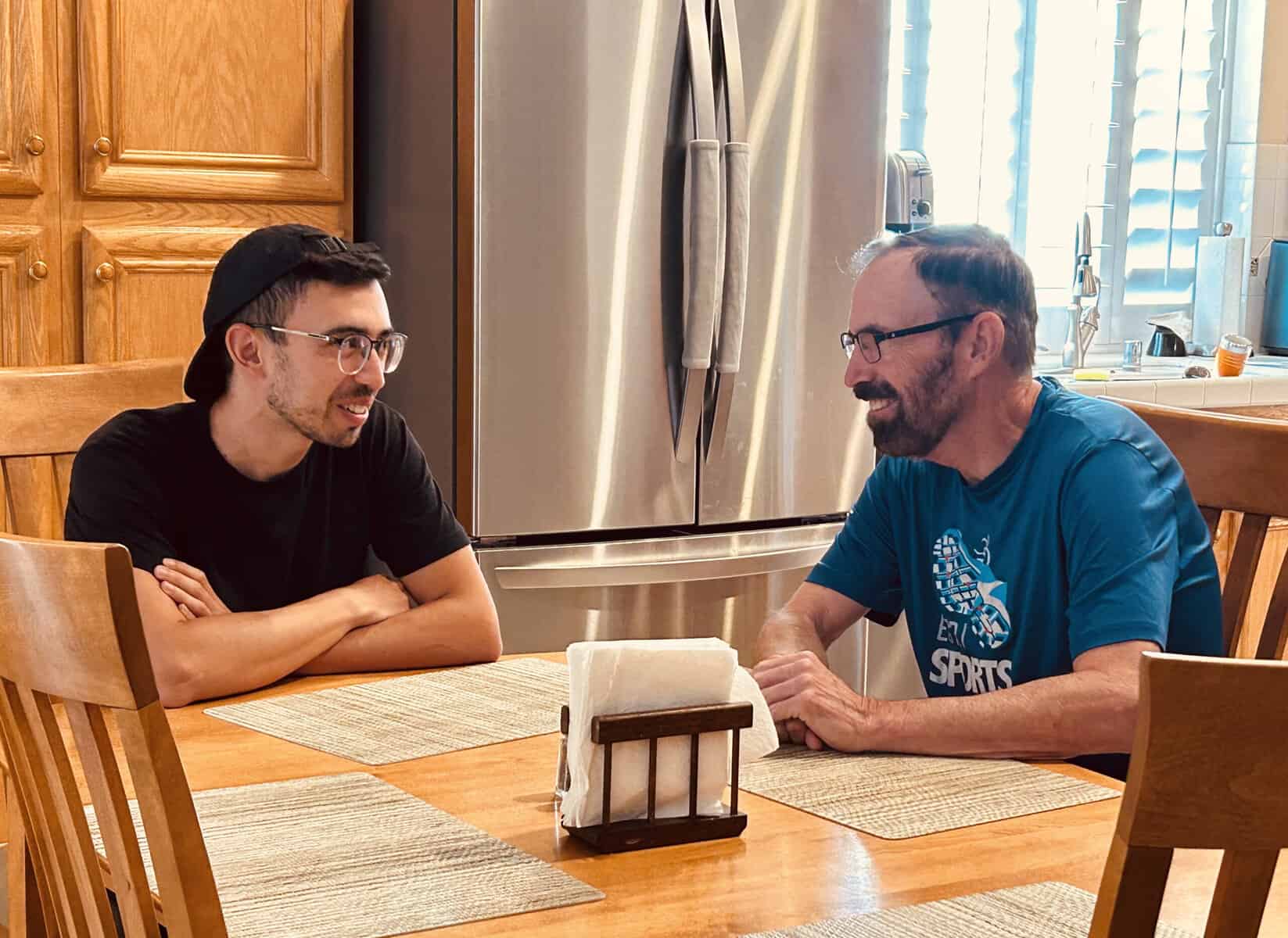 Tom Shippee and his oldest son, Alex, are devoted Christians. Both together and separately, they’ve been on an in-depth theological journey to explore what it looks like to be a family that disagrees on what constitutes faithful sexuality. In this Q&A, Tom shares his thoughts about what it’s meant to try squaring the reality of their lives with their different understandings of God’s truth as revealed in the Bible.
Tom Shippee and his oldest son, Alex, are devoted Christians. Both together and separately, they’ve been on an in-depth theological journey to explore what it looks like to be a family that disagrees on what constitutes faithful sexuality. In this Q&A, Tom shares his thoughts about what it’s meant to try squaring the reality of their lives with their different understandings of God’s truth as revealed in the Bible.
Note: This is the first of a series. Stay tuned for subsequent questions and responses with Tom.
How would you characterize your own theological position, and that of your son? What labels, if any, do you use?
To be honest, both of us resist labels because they are completely inadequate within the nuanced reality of who we are as human beings. I strongly hold to a traditional, or what is sometimes called the Side B, sexual ethic. That means that genital sexual intimacy is reserved for a covenantal marriage between one man and one woman. Alex has chosen to date men with the intent of entering into a long-term intimate covenantal relationship with a single man. So, I guess that puts him in the more progressive, sometimes called Side A, camp.
But we continue together on our learning journeys. He has attended several Revoice gatherings, which build community among queer-identifying Christians who lean into a more traditional posture on sexuality, and he has many close traditional/Side B friends. And for my part, I have continue to be in contact with several progressive/Side A folks I met through the Oriented to Love dialogue I participated in. I think we are both trying to remain open, listening to what our theological “others” have to offer. These are complex questions about a highly nuanced reality.

How can parents who hold a traditional view of sexuality maintain (and perhaps even strengthen) a close, loving relationship with their queer Christian child who embraces a more progressive theology?
I can only speak to this from my own experience with a very special gay son who deeply treasures his Christian upbringing and Hispanic heritage. He tirelessly works to maintain family harmony in the midst of much confusion and fear. Here are a few insights from our journey:
Lead with love: My relationship with my son (like my marriage) is a covenant. That means the relationship and the unconditional love that holds it together have to be my top priority. My only hope for having influence on my son’s life is to be lovingly in his life, by his choice.
Be quick to listen: I ask to hear his story and then try to truly listen—without interrupting. I have tried to discern his heart. It is all too easy to enter these kinds of discussions on a critical search-and-destroy mission to find and expose the logical flaws in his thinking. I have to check my own discomfort at the door and try to empathize with where he is right now and what he is feeling in this moment.
Give desired space: My wife and I have worked to give him a safe space to process whatever is going on in his life. We have encouraged him to explore his own thoughts privately. Journaling can be a good non-threatening space for this. We then invite him back to share from those thoughts with us. When that does happen, we try to listen carefully for how God may be engaging him. We focus less on providing the quick fix and more on how God is using this season in our own lives to stretch and grow us relationally and spiritually.
Watch for “quality time” moments: As my son and I have worked to build trust into our relationship, important connection opportunities have come. For us it has often been “processing” over an early morning breakfast. Both of us try to use gentle open-ended, non-leading dialogue type questions to stimulate thought and discussion. We are not always immediately successful. But while progress has felt glacially slow, change has come in the midst of our willingness to be open and vulnerable with one another.
Grieve and release my own fantasies: For me, the most difficult aspect of this journey has been letting go of my dreams for my son’s future… things like a humble joyous wedding, sharing birthing stories with a pregnant daughter-in-law, and teaching the grandkids how to set up the Christmas train. At one level this is a real loss to mourn—letting go of parental expectations—and it should be part of all parenting. It doesn’t just happen to parents of queer kids. But at another level, it has opened a way for his “real life” to replace my fantasies. And ultimately that is healthier for all of us.
Tom Shippee is a retired technical trainer and curriculum developer. He is an active member in his local evangelical church where he works to help foster a more nuanced understanding and deeper compassion for queer Christians and their families.


